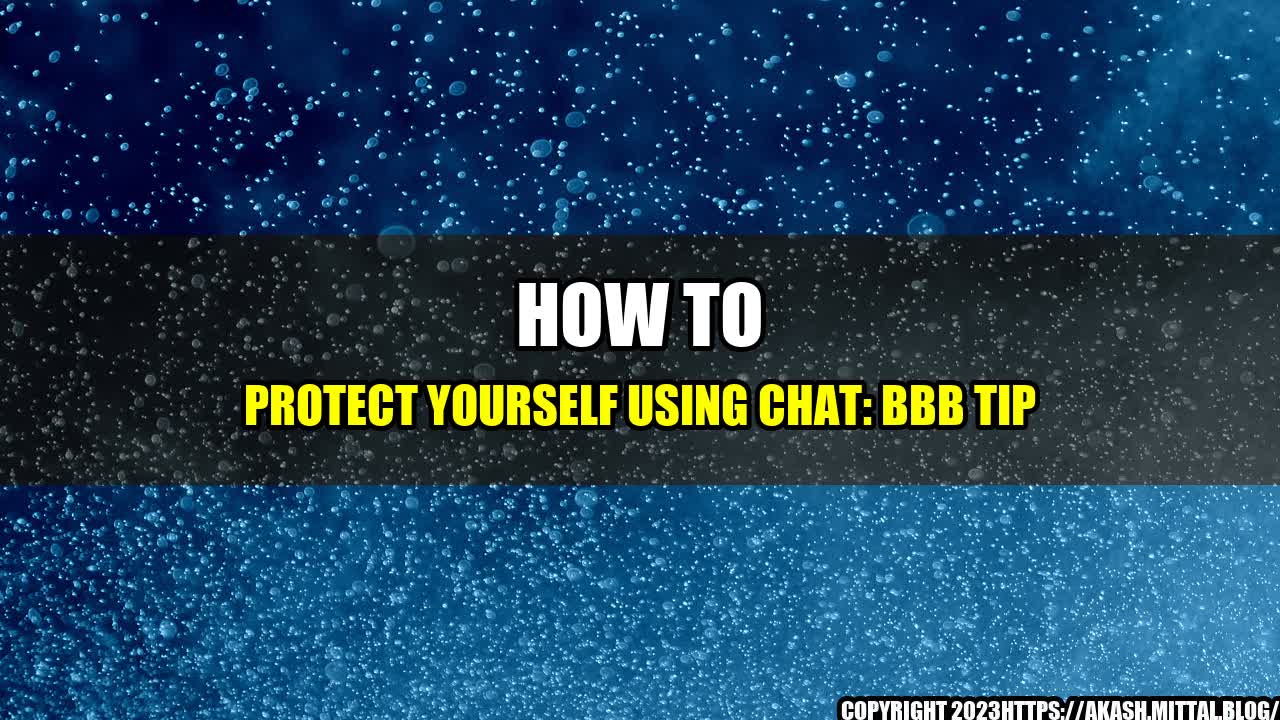Do you know that chat can be an easy gateway for scammers to gain access to your personal information and scam you? That's exactly what happened to my friend Nick.
Nick was in a chatroom when someone started a conversation with him. It started out harmless, but eventually, the person on the other side started asking Nick for sensitive personal information. Nick ignored the person's requests and left the chatroom, just in time before any serious harm was done.
Unfortunately, not everyone is as lucky as Nick. According to a study by the Better Business Bureau (BBB), chat scams and phishing attacks are on the rise. It's imperative for everyone to know how to protect themselves when using chat.
Here are some quantifiable examples provided by BBB:
- Online purchase scams involving non-delivery continues to be the riskiest scam, according to BBB's scam tracker data, accounting for 38.3% of reported scams.
- The median dollar loss for a COVID-19-related scam is $300, which is higher than the median loss of $150 for non-COVID-19 scams.
- The pandemic has provided more chances for phishing attacks and cybersecurity threats, with an overall increase of 20% in phishing scams in 2020 compared to 2019, according to a report from Bolster.
How to Protect Yourself Using Chat
Here are some practical tips to protect yourself when using chat:
1. Keep Your Personal Information Private
Never share personal information like your full name, address, phone number, or financial information in a chat without verifying the other person's identity. Scammers use this information to commit identity theft and fraud. Don't trust anyone who asks for your personal information.
2. Be Wary of Unsolicited Messages
Be cautious of unsolicited messages, especially from people you don't know. Scammers use various tactics to gain your trust before asking for personal information or money. Always verify the identity of the person you're chatting with before engaging in conversation.
3. Use Secure Messaging Apps
Use secure messaging apps that offer end-to-end encryption, which means that only the sender and the recipient can read the messages. Some of the popular secure messaging apps include Signal, WhatsApp, and Telegram. Avoid using third-party chat services or apps that haven't been vetted for security.
Conclusion
In conclusion, chat can be a great way to communicate with friends and family, but it can also be a breeding ground for scammers and cybercriminals. To protect yourself, keep your personal information private, be wary of unsolicited messages, and use secure messaging apps. Remember, it's better to be safe than sorry.
References
- BBB Study Reveals Riskiest Scams of 2020 Amid Pandemic
- 2021 Q1 State of Phishing and Account Takeover for Consumer Brands
Hashtags
- #BBBTip
- #ChatScams
- #PhishingAttacks
- #SecureMessaging
- #Cybersecurity
Category
Cybersecurity

Curated by Team Akash.Mittal.Blog
Share on Twitter Share on LinkedIn